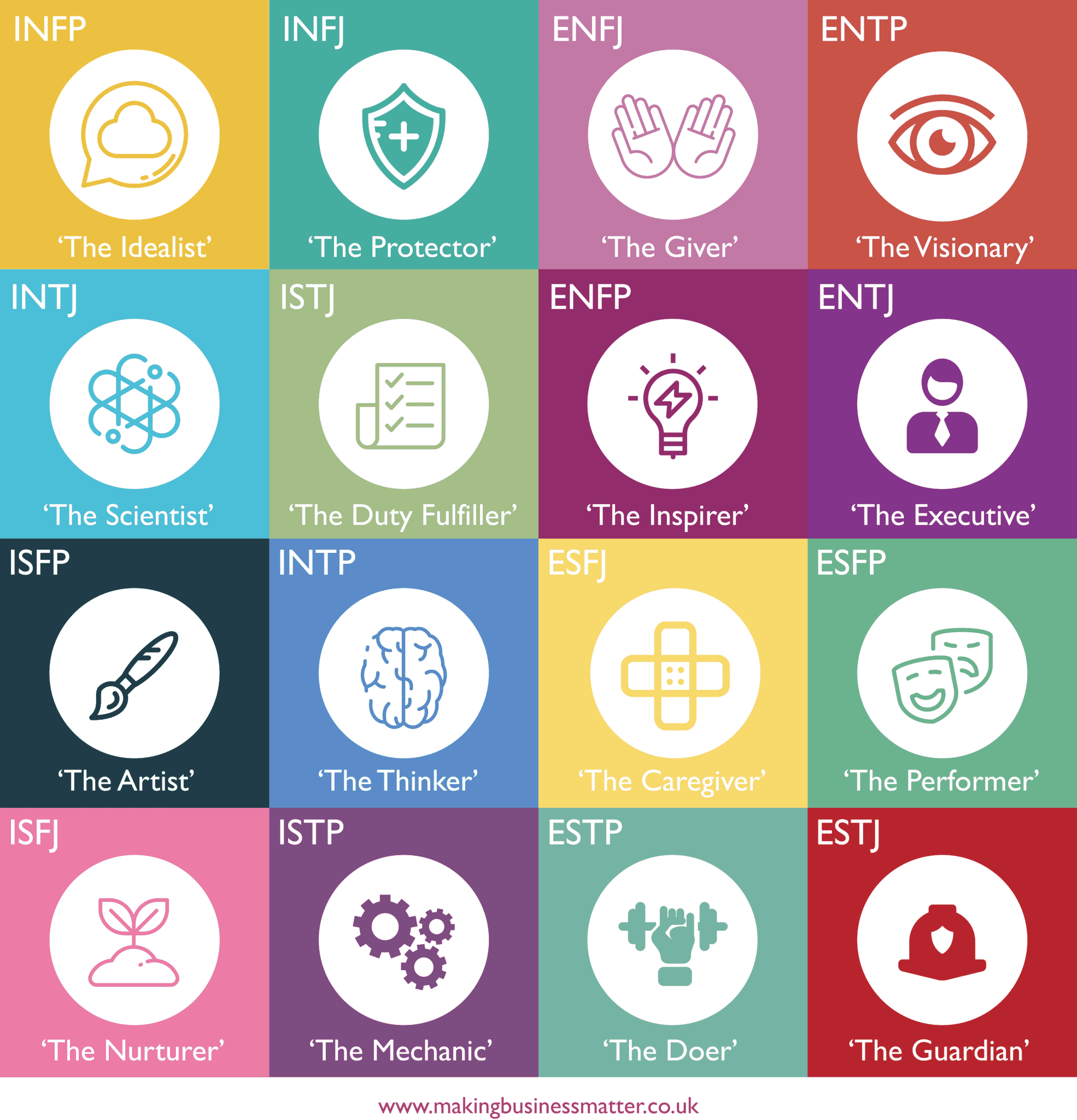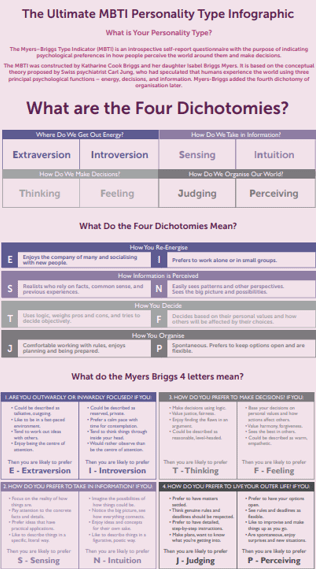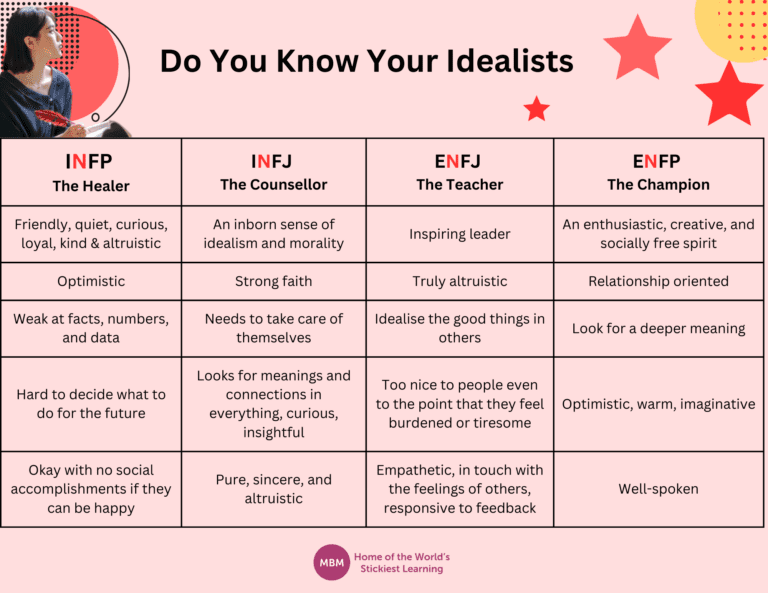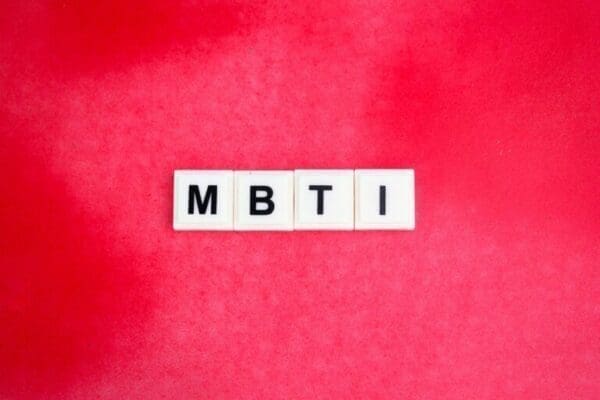‘The Giver’
If one man can destroy everything, why can’t one girl change it?
– Malala Yousafzai
Who better than Malala to exemplify the essence of a true ENFJ – Teacher, Mentor, and Guide?
Welcome to this comprehensive guide, which aims to inspire, guide, and even teach you some unique insights. The lessons contained herein will be exclusively relevant to you as the reader. It’s almost like the universe is calling out to you. With your determination, we have faith that you will succeed. Also, this guide has been infused with the spirit of all the ENFJ warriors who have come before you. May their wisdom enlighten your understanding of what it truly means to be an ENFJ, and may they give you the strength to embody the qualities of an ENFJ and overcome any weaknesses. We hope to help you rediscover the essence of a true ENFJ.
ENFJs may seem plentiful, but they are quite rare. Only 2.2% of the population? It may be hard to believe, but ENFJs are very popular. What sets ENFJs apart is their unique and strong presence, making them stand out in a crowd. It’s not just about the numbers; it’s about the special qualities they bring to the table that make them so sought after and distinctive.

>> Advanced Grow Coaching Cards <<
>> Shop on Amazon <<
MBTI | An Overview
Carl Gustav Jung? Isabel Briggs-Myers? Who’s the founder of MBTI?
While many claim that Katherine Briggs and her daughter Isabelle Myers are the creators of the now-famous MBTI, did you know it was Carl Gustav Jung who came up with the idea first?
MBTI is based on Carl Jung’s work, “the influential theory of psychological types,” dating back to 1921. Moreover, his work discusses preferred types of behaviour with four main functions. Specifically, the first two functions define the way we perform – how we take information and how we make decisions. Additionally, the second two functions define our energy or form of expression – extraversion and introversion.
Controversially and contrary to popular belief, Jung repeatedly objected to Katherine and Isabelle’s work, claiming that his work had been misinterpreted.
Development of MBTI
Strong with the belief that Jung’s theory on the knowledge of preferences will help women find work, Isabelle Myers, with the help and guidance of her mother Katherine Briggs, embarked on a journey that led to the birth of MBTI, also known as Myers Briggs Type Indicator. Additionally, one of the key advancements the mother and daughter added to the MBTI dimension is the attitude to the outer world, and so the birth of a 4th preference came to light.

The Rise and Fame of MBTI
In 1970 Isabelle Myers and Mary McCaulley worked together to bring light to MBTI and soon after in 1975, their efforts paid off as it became one of the most used and well-known personality type assessments in the world (even until now).
Sticky Learning ® is 7 times more effective than 1-day training courses. Plus, you will get a Chain of Evidence proving your Return on Investment. Discover soft skills training that changes behaviours long term.

The 5 Values of MBTI
- MBTI can be used for individuals or teams.
- MBTI is a framework to improve self-awareness.
- MBTI is a powerful tool to improve communication.
- MBTI is a tool to develop leadership skills such as problem-solving, decision-making, change management, and teamwork.
- MBTI is a method for identifying stressors and how to manage them.
The 4 Dimensions of MBTI
Let’s start our self-awareness journey with the 4 dimensions of MBTI. Here’s a quick checklist to gauge yourself and see where you stand. Reflect on those 4 questions without overthinking (we will cover more in-depth a little later, this is just to get you started).
- First Dimension – how do you express your energy: are you an Extrovert (E) or an Introvert (I)?
- Second Dimension – how do you process information: are you a Sensor (S) or an Intuitive (N)?
- Third Dimension – how do you make decisions: are you a Thinker (T) or a Feeler (F)?
- Fourth Dimension – how do you like your lifestyle: are you a Judger (J) or a Perceiver (P)?

Now that you have reflected, you will notice that the different combination of those 4 dimensions results in 16 profiles which we know as MBTI. Those 16 personality types are divided into 4 different quadrants or families which we call: Rationales (INTJ, INTP, ENTJ, ENTP), Idealists (INFJ, INFP, ENFJ, ENFP), Guardians (ISTJ, ISFJ, ESTJ, ESFJ), and Artisans (ISFP, ISTP, ESFP, ESTP).
While we are born with a certain set of tendencies, we also develop subsequent tendencies as we grow up due to our environment and the experiences we go through.
The Different Tendencies
Let’s say there’s someone who’s usually very outgoing (extroverted). But sometimes, things happen in life that make them feel more shy and introverted. And sometimes, we might choose to act more like someone very organised and productive (a “judger”) because it helps us get things done.
But here’s the thing: nobody is just one thing or the other. We all have different tendencies towards things like being outgoing or shy, organised or flexible, and so on. And everyone’s tendencies are a little bit different.
So when we learn to do things differently, it doesn’t mean we’re changing who we are. It just means we’re getting better at some things because of the situations we’re in.
It is important to be cautious about living in a constant state of stress, anxiety, and worry, as it can cause you to act from nurtured tendencies rather than your natural tendencies. If you find yourself in this situation, it may be helpful to revert to your natural tendencies to lower your stress levels. Once you have mastered both dynamics, you can then move between them as needed.
Okay enough with MBTI, you want to know more about yourself, right? Just in case your curiosity is taking the best of you, you can check our ultimate MBTI guide (Myers Briggs). And if you want to confirm you are INFP, you can go through this short MBTI test.
ENFJ | Meaning
ENFJ personalities are those you turn towards when you need inspiration. Moreover, they are excellent guides for personal and professional growth. Additionally, ENFJs’ gift of insight allows them to cut through the BS and lead you straight to the source.
Would you like to know a secret? A secret that most ENFJs wouldn’t want you to discover? Here are five secrets that could benefit you:
Firstly, ENFJs prioritise helping others, making things right, and empowering people.
Secondly, they possess an incredible ability to persuade others to do what they want.
Thirdly, their self-esteem is highly influenced by your opinion of them.
Fourthly, they tend to be more reserved than other extroverts since they take your feelings into account.
Surprisingly, fifthly, they can feel lonely even when they are surrounded by people.

If your sun sign or rising sign is in Leo, you probably embody the ENFJ characteristic to the T. Perhaps you enjoy leadership coaching, career coaching, self-esteem coaching, or even wedding planning as a side hustle. It is more and more probable that you are an ENFJ.
Do you enjoy helping others and putting other people before your own needs? Do you feel you have a calling to serve something great? Have you heard your peers whisper that you always seem to say the right things? You’re ENFJ certified!
If you still have some doubts, count how many traits you have.
It seems to be amazing being an ENFJ after everything we read, so now the obvious question on everyone’s lips.
Is ENFJ the Rarest Personality?
We mentioned at the beginning of this article that ENFJ makes up 2.2% of the population. Is it enough to rank as the rarest personality? While different sources have different statistics, none ranked ENFJ as the rarest personality type. Truity ranked ENFJ as the 4th rarest personality type (2nd for ENFJ men), while PsychologieJunkie ranked ENFJ as the 2nd rarest personality type! You are a rare breed! We should cherish you more. Having an NF core, people and values are primordial and even vital for your well-being but remember to take care of yourself.
What About ENFJ Women You Might Say?
Only 3% of the population consists of women with the ENFJ personality type. This is an exclusive group that includes great personalities like Oprah Winfrey. ENFJ women are highly charismatic and affectionate, with an ability to captivate people through their words. They have a natural talent for connecting with others and making them feel happy. Moreover, these women possess excellent problem-solving skills and are often very nurturing to those around them.
What Are They Like?
A visionary, charismatic leader who never shies away from helping someone in need. As an ENFJ, you enjoy giving people advice and inspiring them to become their best selves. You are great at getting other people’s feelings and helping them heal. Among your most important qualities are your charisma, enthusiasm, reliability, and support. On the downside, you, ENFJ can be manipulative, too selfless, conflict-averse, and overcommitting.
INFP | Personality Type
Remember the 4 dimensions we briefly discussed earlier when describing MBTI? Well, here we are. I hope you were able to reflect, if not this is your chance.

-
First Dimension
Let’s start with the first dimension. And the winner is (E) for “Extroversion”! Party and party, anyone?
As an extrovert, ENFJs gain energy (and feel re-vitalised) by being in the company of others and external events. Notably, their preferred way of communication is by talking, which also allows them to work out ideas by talking them through. Additionally, they learn best through doing or discussing. In contrast to the introvert (their opposite), they have broad interests. Furthermore, ENFJs are sociable and expressive – they often share personal information and pry on others. Consequently, ENFJs often take initiative in work and relationships.
Are you an extrovert? Or maybe, just maybe, an ambivert? One of the top organisational psychologists Adam Grant conducted studies that showed that 2/3 of the population are ambiverts. To make sure you know who you are, here’s a 9-item checklist you can check.
-
Second Dimension
Next, let’s welcome the second dimension. Here, we answer the question: How do you process information?
ENFJs have a natural talent for understanding and connecting with people. They are very good at noticing patterns and picking up on new information. They are more focused on the future and what it holds than the present. ENFJs also trust their instincts and prefer to figure things out on their own, even if it takes longer than asking for help.
-
Third Dimension
Let’s move to the third dimension. Now, are you objective or subjective when making decisions?
Here, people and values are at the centre stage for ENFJs. Some might call them subjective in their decision-making, but they don’t care, or rather, they care too much. Notably, they always take into consideration people when making decisions. Furthermore, they are people pleasers who work best when there is harmony at work. Being people-driven, ENFJs also enjoy giving and receiving appreciation and finding common interests to share, as well as common grounds to work on. Fair is their middle name, and treating everyone equally is a must for them. Additionally, ENFJs also take into consideration the ideas and opinions of others before making a decision.
-
Fourth Dimension
And finally, the fourth dimension – lifestyle.
It’s time. Time is running out. I don’t have time. I need to be productive. Shall we go on? ENFJs are sticklers to rules, time, rituals, productivity, and patterns. Let’s face it; they are very predictable. Moreover, the first one to be at a meeting or on a date, ENFJ has a very tight schedule they follow. Planning and preparation take precedence as they don’t like surprises.
Additionally, steady and consistent wins the race; it’s a J motto. Notably, the most beautiful gift a judger can receive is a goal, a plan, and a deadline. Consequently, if you’re looking for creativity, they’re not the ones you should be seeking.
In a nutshell, ENFJs’ dominant cognitive function is an extroverted feeling, making them friendly and people pleasers. Additionally, their auxiliary function is introverted intuition, making them big-picture thinkers who use patterns to gather information. Moving on, extraverted sensing is ENFJs’ tertiary cognitive function, meaning they are present and highly aware of their environment. Finally, introverted thinking is the last (but not least) cognitive function of ENFJs, signifying that they base their decisions on people’s feelings and personal values.
ENFJ | Smart

History has been very judgmental; you’re only smart if you’re number smart or strategic (or something like that). Engineers and doctors are smart, the rest of the world needs to catch up. Let me tell you something, one of my favourite quotes was said by a certain Albert Einstein (yes ‘that’ Einstein):
Everybody is a genius. But if you judge a fish by its ability to climb a tree, it will live its whole life believing that it is stupid”.
Interesting right? Howard Garner, a Harvard psychologist, wrote a book in 1923 about 9 different types of intelligence. NINE! What does this mean for you? What type of intelligence does ENFJ possess? Interpersonal Intelligence. Communication is a piece of cake for you. You’re skilled at both verbal and non-verbal communication. You understand the motivations and emotions of others and are pretty good at resolving conflicts. And that my dear comes in super handy when you’re dealing with people.
Now what is the smartest personality type? INTP, are most probably known as nerds.
But that’s not all! Are ENFJ intelligent? You are the 3rd most intelligent personality type. YES, you are on the podium and among those geniuses. You have great organisational skills and are good when dealing with crises.
Weaknesses
What are ENFJ’s weaknesses? Manipulation, overprotection, rigidity and uncompromising, overly sensitive, and approval seeking are on the list. Since we’re dealing with the world of emotions here, it can go from one side to the other and when ENFJ give too much, they can go to an extreme. Those characteristics can go both ways. It’s important to set clear boundaries and know when it’s time to take a break from giving.
ENFJs |What Do You Do When You Are Angry?
One word: Vent. And you rely on your close friends to help you externalise your emotions. If you have no one to talk to, you will pace around wondering what you did to deserve that. You may become sarcastic, cranky, and impatient.
One key solution that will help your anger is to tune into another person’s story.

ENFJ | ENFJ-t (the 5th Dimension)
T for Turbulent. Turbulent INFPs (ENFJ-t) are less assertive than Assertive ENFJ (ENFJ-a). They tend to mince their words and bite their tongues before answering. On the other hand, they are better listeners than ENFJ-a. They are more likely to ask the opinions of their friends and partners. ENFJ-ts are also more likely to express their emotions. At work, ENFJ-t is more cautious of the two and tends to work more. ENFJ-a is bolder.
ENFJ | Compatibility
So, who should you marry? Idealists are most compatible with Rationales. As an Idealist – ENFJ has the best flings and passionate short-term relationships with INTPs, while they have the best long-term lovey-dovey relationships with ENTPs.
When it comes to building a relationship, it’s important to have a balance of both shared and complementary traits. The shared traits will help you feel comfortable with the person, while the complementary traits will create the necessary friction to keep the relationship interesting. Finding the right combination of traits to discover your ‘almost’ ideal partner will depend on your upbringing, your current environment, and the goals you wish to achieve in your life.
Taking the example above, the INTP will bring introversion, more depth, and creativity into the relationship. While this combination is intriguing in the short term, it can exhaust you in the long haul.
So, what are you choosing? Or rather whom are you choosing?
How Does ENFJ Compare to the Other Three Idealists?
Click the image below for a larger resolution:

Now that we know more about ENFJ, let’s see how other idealists fair.
ENFJ and INFP

In relationships, ENFJs tend to have big hearts. They are very kind and generous. They always have a supportive presence for their partner, and keep encouraging their dreams. Warm and welcoming, trustworthy and honest, ENFJ works hard on relationships.
While ENFJ can be social butterflies, they crave meaningful relationships and deep connections.
In the negative, ENFJ overcommit and are overprotective and can take their partner’s dream to an extreme.
ENFJs’ love languages are unique as they are the only personalities who have quality time and words of affirmation as number one, closely followed by physical touch.
Who’s their best match? INFP, their soulmate!
ENFJ are attracted to the depth and empathy of INFPs while INFPs are attracted to the kindness and charisma of ENFJ.
ENFJ and INFP have similar values and they share a strong core (NF), which makes them form a strong bond. They are both into personal growth and enjoy caring, meaningful, and deep connections.
The differences between their extroverted/introverted and judger/perceiver help each in the growth and the growth of their relationship.
On the positive, ENFJ inspires INFPs to go out of their comfort zone and come up with concrete plans, while INFP inspires ENFJ to introspect and be more relaxed with their day-to-day.
And now, let the wedding bells start ringing!
Learning & Growing
But first, a little glimpse into how you became you.
Development:
ENFJ just like any other personality type goes through three phases of transformation in their lifetime. Phases can be shorter or longer depending on your nature, the environment you are growing up and developing into, and your career.
1- First Phase
The first phase is childhood. As highly charismatic children, ENFJ’s main development at this stage is their extroverted feeling function. ENFJ may seem opinionated and judgmental, and they tend to jump to conclusions because they still haven’t integrated their intuitive function. They take themselves and life very seriously and strive for excellence in whatever they do. The outside world is like a playground they enjoy messing around in, meeting new and different people, debating, and sharing their ideas, and developing their extroverted activities which mainly consist of gathering knowledge.

2- Second Phase
The second phase happens between adolescence and early 30s. This is where ENFJ develops the second faculty – intuition and is at odds between the emotional teenage years and the maturity – thinking & feeling. ENFJ will start to rethink their previous thoughts and judgments. The internal struggle can last a while. In this phase, ENFJ starts to develop their extraverted sensing.
3- Third Phase
The third and final phase of development for ENFJ is the integration phase. This is where all the pieces of the puzzle click together.
How E & I Can Help Complement Each Other
Extroverts can help introverts open their sphere of influence by:
- Moving into action.
- Broadening their ideas.
- Amplifying their energy focus.
- Expanding their interaction.
- Widening their network.
- Providing extensive information.
Introverts can help extroverts centre themselves by:
- Reflecting more.
- Scanning through ideas.
- Deepen their calmness.
- Strengthen their concentration.
- Deepen their friendships.
- Listening to others.
How S & N Can Help Complement Each Other

Sensors can help intuitivism be more practical by:
- Adding more facts.
- Providing more practical and realistic information.
- Looking deeper at the details.
- Applying their experience when solving problems.
- Focusing on what needs attention now.
- Focusing on the present.
Intuitive can help Sensors recognise the inter-connectedness by:
- Looking at new ideas.
- Creating change.
- Being open to looking at trends.
- Applying insight and pattern recognition to solving problems.
- Focusing on long-term goals instead of short-term goals.
- Focusing on future possibilities.
How T & F Can Help Complement Each Other
Thinkers can help Feelers get clearer and more direct by:
- Analysing the implications and consequences.
- Being consistent with rules.
- Standing firm on important principles.
- Being more objective when making decisions.
- Having specific criteria allows a clearer thinking process.
Feelers can help Thinkers reconnect by:
- Predicting how others will react and feel.
- Making individual exceptions when necessary.
- Accepting human-centred values.
- Allowing better cooperation and collaboration.
- Creating a more harmonious environment
How J & P Can Help Complement Each Other
Judgers can help Perceivers be more productive by:
- Being more organised and decisive.
- Sharing decisions and moving ahead.
- Being in control.
- Having closure.
- Focusing on tasks and goals.
- Providing clear expectations and timelines.
Feelers can help Judgers be open to possibilities by:
- Being more flexible and adapting better.
- Dealing with situations as they arise.
- Embracing new experiences.
- Being open to options.
- Being open to new information.
- Accepting change.
Great points, right? Now, as an ENFJ, your opposite would be ISTP. I’d like to invite you to choose one point of each of your opposites (that makes 4 points) and develop them, making them part of you.
How to Communicate with your ENFJ Manager, Colleague, or Romantic Partner

Do you want to get the most out of your ENFJ colleague/employee/boss or even your romantic partner? It’s simple, just act as they would, and they will love you for it. So much that you will see their productivity skyrocket, their affection for you increases, and more.
The 5 ENFJ Rules for the Introvert (rule 0: Let’s Connect)
- Show you are listening by acknowledging and hinting you are preparing an answer.
- Try using your body language to express your interest and enthusiasm such as leaning forward, nodding, smiling, and most importantly eye contact.
- Be ready to share more information (others would want feedback).
- Take initiative sometimes and introduce yourself or start a conversation.
- Expect not well-thought-out words as extroverts think out loud.
The 6 ENFJ Rules for the Sensor (rule 0: Dream a Little, You are Allowed)
- Provide a bird’ s-eye view, big picture, or overview before going into the facts and details.
- Don’t stay too long on facts and details.
- Share the main points and if necessary, add some details.
- Show the potential of your ideas, and where they could lead, INFP likes to dream up possibilities.
- Don’t get stuck on facts, be open to changing what doesn’t work – have a leap of faith.
- Sharing is caring, give space for ideas and dreams (don’t be a party pooper).
The 6 ENFJ Rules for the Thinker (rule 0: People Buy Emotions, Not Facts)
- Take the time to get to know ENFJs and develop a rapport with them.
- When you are listening, avoid criticism.
- Remember to be friendly and offer support and encouragement.
- While honest feedback is important, remember to provide it gently and to critique the behaviour instead of the person – acknowledge don’t analyse feelings and values.
- While focusing on your tasks and objectives, remember that individuals are also involved in the situation – adding a personal touch would go a long way.
- Focus on creating a win-win situation, not everyone likes competition.
The 4 ENFJ Rules for the Perceiver (rule 0: Be On Time and Follow the Rules)
- Do whatever it takes to stick to the agreed schedules and deadlines.
- Prepare the judge about possible changes, they dislike surprises – that way they can include the possible change in their calendar.
- Take a decision based on the information you already have. It’s better to apologise rather than regret a missed opportunity – just do something, anything.
- Use lists and action plans to inspire you to action on specific tasks.
ENFJ | What Stresses ENFJ

The 5 stressors linked to their extroversion
- Working alone.
- Having to communicate only by email.
- A lengthy period of work with no interruption.
- Having to reflect before acting.
- Having to focus in-depth on one thing
The 4 stressors linked to their feeling:
- Setting criteria and standards.
- Criticism and concentration on flaws.
- Focusing on tasks only.
- Asking questions that seem inappropriate
Up for a challenge? I would like to invite you to work on one of the points mentioned so that you are in control of your stressor rather than them controlling you. And remember that “Rome was not built in a day.” Take it one bite at a time. And every time do one smaller step.
How Do ENFJs Solve Problems?
First ENFJs look at the urgent needs of people and their values. As they love harmony, they will want to strive towards a win-win situation. Second, they start looking for hidden patterns and meanings.
One challenge ENFJ can face when they are fixated on creating a win-win situation is that they tend to rush the process which leads to a solution that doesn’t match their needs. Another challenge to keep in mind when focusing on the patterns is not to overlook the facts.
ENFJ | Careers
ENFJ’s passion for helping people and natural charisma endows them with a natural and much-coveted leadership. Consequently, they inspire, motivate, and do good in the world. However, to better understand which career path is ideal for ENFJs, let’s have a quick look into their strengths and weaknesses. On the positive side, ENFJs are tolerant, reliable, and charismatic. On the flip side, they might be too selfless, too sensitive, and have fluctuating self-esteem.
As a natural leader who values people and creates harmony in professional settings, here are the ideal careers for an ENFJ. Notably, they also might find fulfilment as an advertising and promotions manager, consultant, facilitator, human resources professional, psychologist, photographer, producer, executive assistant, sales manager, editor, reporter, art director, and athletic trainer. Moreover, they can also excel in roles such as teachers, executive coaches, and even politicians.
Creative Types
Did you know that ENFJs are amongst the most creative types?

As an extrovert, ENFJ prefers to interact a lot with people at work – that’s how they can maximise their energy. Additionally, being intuitive, they prefer working with abstract things like theories, ideas, and possibilities – that’s how they think best. Furthermore, ENFJ’s decision-based style is focused on values that guide them to help people. Given their judging preference, ENFJs prefer a lifestyle that involves working in an organised, structured, and orderly workplace.
With that in mind, ENFJs are inspiring guides and teachers who love to do work that improves the lives of others and makes this world a more beautiful place.
As an NF, your main strength lies in seeing the potential for people’s development and growth. It’s all about exploring people’s possibilities. Consequently, you solve problems and make decisions using your NF functions (remember the 5 values, and this will go a long way in determining your ENFJ career path).
With “N,” you tune in to causes, generate alternatives, and seek patterns related to the problem. Additionally, with “F,” you see where the decision fits with people and the values of the organisation. Subsequently, you assess the effect on both and then determine how to win others to your solution.
Whatever career path you choose, make the most out of your skills. Specifically, being genuine and warm with people, valuing people’s feelings, and striving to create harmony are key strengths. Additionally, having strong organisational abilities, loyalty, and honesty can contribute significantly. However, it’s essential to be mindful and stay away from being extremely sensitive to criticism and needing approval.
ENFJ | Lifestyle
Note that ENFJs enjoy organising events, reading, the arts, museums, telling stories, music, writing, and cooking.

ENFJ | Quotes
“If you want more, you have to require more from yourself.” Phil McGraw
“It’s very easy to be judgmental until you know someone’s truth.” Kate Winslet
“If you have an enemy, then learn and know your enemy, don’t just be mad at him or her.” Denzel Washington
“Your best teacher is your last mistake.” Ralph Nader
Quotes From Our Favourite Characters
“Everyone has inside of him a piece of good news. The good news is that you don’t know how great you can be! How much you can love? What you can accomplish! And what your potential is!” –Anne Frank
“I know you’re afraid, but being afraid is alright. Because didn’t anybody ever tell you? Fear is a superpower. Fear can make you faster cleverer and stronger. And one day you’re gonna come back to this barn and on that day you’re going to be very afraid indeed. But that’s okay, because if you’re very wise and very strong fear doesn’t have to make you cruel or cowardly. Fear can make you kind. It doesn’t matter if there’s nothing under the bed or in the dark so long as you know it’s okay to be afraid of it.
So listen. If you listen to anything else, listen to this. You’re always gonna be afraid even if you learn to hide it. Fear is like a companion, a constant companion, always there. But that’s okay because fear can bring us together. Fear can bring you home. I’m gonna leave you something just so you’ll always remember. Fear makes companions of us all.” -Clara Oswald, Doctor Who
“You have seen my heart, and you know it’s not untouched. You are not all evil and I am not all good. Things are not that simple.” -Mary Margaret Blanchard “Snow White,” Once Upon a Time
“Admitting your fears is the first and most difficult step in overcoming them.” -Tenzin, Avatar: Legend of Korra
ENFJ | Famous People
Let’s look at some of the visionaries; our teachers who guide us to become the best version of ourselves and reach our full potential. The first that pops to mind is the one and only Oprah Winfrey. In the film industry who better than Steven Spielberg to represent ENFJs? Abraham Maslow is one of the most renowned psychologists, and Cristiano Ronaldo, arguably the best football player, is another ENFJ example. Among the politicians, we can find Martin Luther King Jr, whereas in the acting scene Mathew McConaughey, Bradley Cooper and Jennifer Lawrence shine bright.

If you’re into music, you must have heard of Michael Jackson, right? What about Bono and Freddie Mercury?
A noteworthy politician comes in the name of Abraham Lincoln.
With so many inspirational teachers to guide us, we are blessed.
ENFJ | Characters
Now to the fun part! Undoubtedly, you’ve seen the movies, and they have either inspired you or maybe resonated with you (if you’re an ENFJ).
Consider iconic characters like Albus Dumbledore (Harry Potter), Morpheus (The Matrix), and Peeta Mellark (The Hunger Games). But, as with every personality, the ENFJ has two sides. After we’ve explored our heroes, let’s turn our attention to the villains: Prince Hans (Frozen) and Loki (Thor).
Personality Max has a more exhaustive list if your curiosity invites you for a more particular guide.
ENFJ | Action Plan
Now that you know yourself better, let’s help you step into the world, your new world, with an action plan. Let’s make sure that you are the best version of yourself. We at Making Business Matter strongly support personal and professional growth.
As a manager, colleague, or partner working in the UK grocery industry as a supplier, we want to help you by giving you an action plan specially created for INFP supply managers working in the UK. In our free guide, you will learn with work-based activities, receive a roadmap for line managers to support their teams, and our 5-level evaluation (chain of evidence) to show the ROI of our training (they stick!).
So stop everything you are doing and act now. Whether you are at work or home, ask the people you are surrounded by to do a small project with you for the next 10 minutes. It can also be anything, from designing a marketing campaign to cleaning a room. The key here for them is to divide the teams into two groups: extroverts and introverts. Your goal is to observe. After you do the exercise, send us a Facebook message to receive feedback.

Conclusion
In conclusion, ENFJs, though comprising a small percentage of the population, wield a considerable impact with their rare combination of empathy, charisma, and a commanding presence. As we’ve explored the unique qualities that define ENFJs, it becomes clear that their influence extends far beyond their numerical representation. In a world hungry for compassionate leaders and genuine connections, the rarity of ENFJs only enhances the value they bring to our collective tapestry of personalities.
Updated: November 2023 by Farah Yasser Salama




